10+ Best Forex Brokers for Small Accounts
Looking for the best Forex broker for small accounts? Discover 10+ trusted platforms with low minimum deposits and beginner-friendly tools.

Trading Forex with a small account can feel like trying to run a marathon in flip-flops. You see the leaderboard and want to get there, but there’s only so much you can do with limited resources. How can you stretch your dollars and make meaningful trades? Picking the best Forex broker for small accounts is a great place to start. This guide will teach you how to make money on Forex with little capital by showing you the most trading-friendly brokers that offer the tools and leverage needed to get you to the top.
But it’s not enough to simply choose a broker. You need to maximize your trading potential with capital. Aqua Funded’s funded trading program can help you do just that.
Benefits of Forex Trading
.jpeg)
The first advantage of forex trading is the absence of commissions. This means no clearing fees, exchange fees, government fees, or brokerage fees. Most retail forex brokers offer a standard account that doesn’t charge a separate commission. Instead, brokers make money from the spread, which is the difference between the buying (ask) and selling (bid) price of a currency pair.
For high-volume or experienced traders who want tighter spreads, there are raw spread accounts that do charge a commission per trade. It’s usually a fixed amount per lot traded or a percentage of the trade volume. Some brokers offer both types of accounts, allowing you to choose based on your preferences. If you’re a beginner or a low-volume trader, a standard account is usually more straightforward.
Choose Your Lot Size
In futures markets, lot or contract sizes are set by exchanges. For example, a standard-sized contract for silver futures is 5,000 ounces. In forex, you can trade smaller lot sizes or position sizes. Here’s a breakdown of how lot sizes typically work with brokers:
Standard Lot
100,000 units of the base currency.
Mini Lot
10,000 units (0.1 of a standard lot).
Micro Lot
1,000 units (0.01 of a standard lot).
Nano Lot
100 units (some brokers offer this option even in smaller quantities).
Most platforms allow you to enter any lot size you want, as long as it meets the broker’s minimum and maximum trade size requirements. This provides you with the flexibility to adjust your position sizes according to your risk tolerance and trading strategy.
Low Costs to Get In
Retail transaction costs in forex are generally low. The bid/ask spread is typically less than 0.1% under normal market conditions. For larger transactions, the spread could be as low as 0.07%. Of course, this depends on your leverage. But the lowest transaction cost isn’t always the best option.
Consider factors such as regulation, customer service, platform features, and educational resources when selecting a broker. And be wary of brokers promising zero spreads. There are always costs involved in forex trading, whether through spreads, commissions, or other fees.
Trade Whenever You Want
Forex brokers typically allow trading 24 hours a day, five days a week. This is because the forex market is decentralized and operates across multiple time zones globally. There is no waiting for the opening bell. From the Monday morning opening in Australia to the Friday afternoon close in New York, the forex market never sleeps.
This is ideal for those who want to trade on a part-time basis, as you can choose when to trade, morning, noon, night, during breakfast, or even in your sleep. Please note that while the market is open 24/7, trading volume and liquidity can vary depending on the session. And some brokers may have specific restrictions on trading hours due to technical maintenance or regional regulations.
Too Big to Manipulate
The forex market is the largest and most liquid financial market globally, with trillions of dollars traded daily. It’s decentralized, meaning it operates across multiple exchanges and doesn’t have a single central authority. The FX market is sufficiently liquid that significant manipulation by any single entity is all but impossible during active trading hours for the major currencies. It’s tough for any single entity to control or manipulate prices. Not even a central bank or the mighty Chuck Norris himself can control the market price for an extended period.
There have been instances where large financial institutions or governments have attempted to influence currency prices. Still, these efforts are typically short-lived and often result in significant losses for those involved. So while individual traders or groups may temporarily impact specific currency pairs through large trades, the sheer size and complexity of the forex market prevent anyone from truly cornering it.
Use Leverage to Your Advantage
Forex brokers commonly offer leverage. Leverage is a tool that allows traders to control a larger position in the market with a smaller amount of capital. It is often expressed as a ratio, such as 50:1 or 100:1. In forex trading, a small deposit can control a significantly larger total contract value. Leverage gives the trader the ability to make nice profits while keeping risk capital to a minimum. The amount of leverage offered by brokers is often regulated by financial authorities to protect traders.
In the US, for example, the maximum leverage allowed for major currency pairs is usually 50:1. For instance, if a forex broker offers 50-to-1 leverage, this means that a $100 margin deposit would enable a trader to buy or sell $5,000 worth of currencies. Similarly, with $500, one could trade with $25,000, and so on. While this is all gravy, let’s remember that leverage is a double-edged sword. Without proper risk management, this high degree of leverage can result in both significant losses and gains.
Enjoy Deep Liquidity
Deep liquidity refers to a market where large volumes of assets can be bought or sold quickly with minimal impact on price. This means there are always plenty of buyers and sellers willing to trade at any given time. Because the forex market is so enormous, it is also highly liquid. This is an advantage because it means that under normal market conditions, with a click of a mouse, you can instantaneously buy and sell at will.
Unlike stock markets, which are centralized on specific exchanges, the foreign exchange (forex) market is decentralized and operates through a network of banks and electronic communication networks (ECNs). This structure ensures that liquidity is distributed across multiple venues, reducing the risk of bottlenecks. You are never stuck in a trade. You can even set your online trading platform to automatically close your position once your desired profit level (a limit order) has been reached, and/or close a trade if a trade is going against you (a stop loss order).
Easy to Get Started
Online forex brokers make it easy to open an account and start trading from anywhere with an internet connection. Numerous platforms and tools are available to facilitate trading. Getting started as a currency trader would cost a ton of money. The fact is, when compared to trading stocks, options, or futures, it doesn’t. Compared to other markets, forex brokers often allow you to start trading with a relatively small amount of money.
Some brokers even offer micro or cent accounts, where you can deal with fractions of standard lots, making it more accessible for beginners with limited capital, and only require a minimum account deposit of $50. We are NOT saying you should open an account with the bare minimum, but it does make forex trading much more accessible to the average individual who doesn’t have a lot of start-up trading capital.
Free Stuff Galore
Forex brokers offer various freebies and promotions to attract and retain customers. Almost all forex brokers offer free demo accounts. Demo accounts are valuable resources for those who are financially constrained and would like to hone their trading skills with virtual money before opening a live trading account and risking real money. These allow you to practice trading with virtual funds, providing a risk-free environment in which to learn the platform, test strategies, and familiarize yourself with the market.
Many brokers offer educational materials, including webinars, e-books, articles, video tutorials, and live training sessions. Some brokers offer free trading tools, including technical indicators, economic calendars, charting software, and trading signals generated by their in-house research teams or third-party providers. And guess what?! They’re usually all free!
10+ Best Forex Brokers for Small Accounts
1. Aqua Funded: Trade Big Without Risking Your Cash
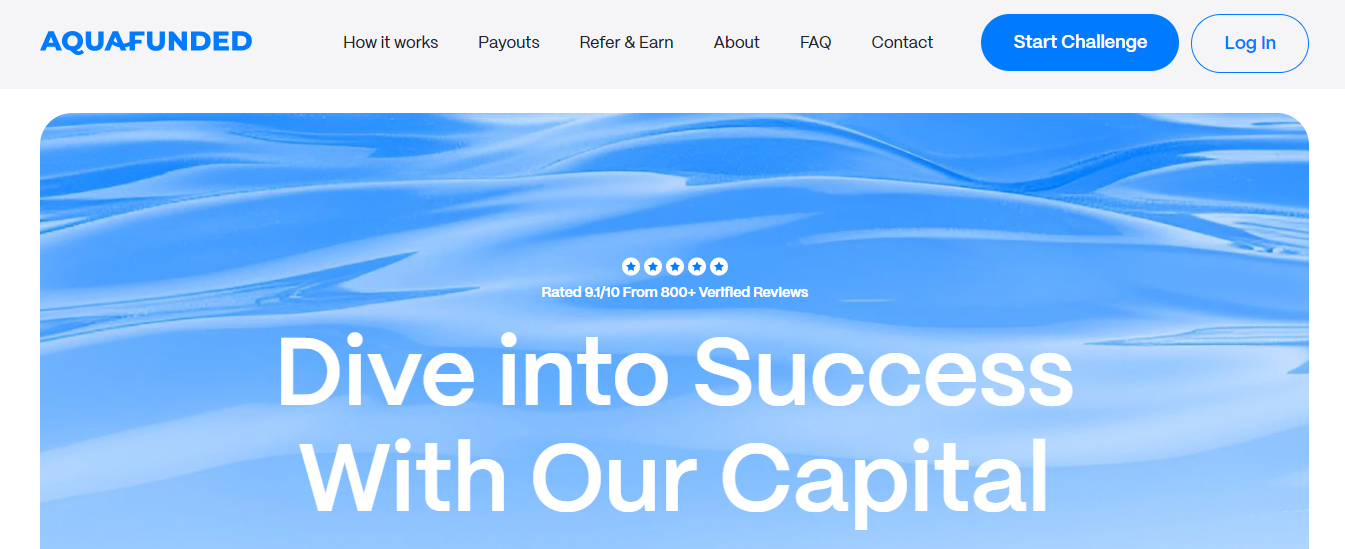
AquaFunded lets you leverage your trading skills to access up to $400K in funding. You don’t put your own money on the line, and you benefit from flexible trading conditions, no time limits, or tight profit targets. With over 42,000 traders worldwide, AquaFunded has already paid out more than $2.9 million in rewards. You can start trading immediately with instant funding or test your skills through customizable challenge paths.
2. IG: A Micro Account Masterpiece
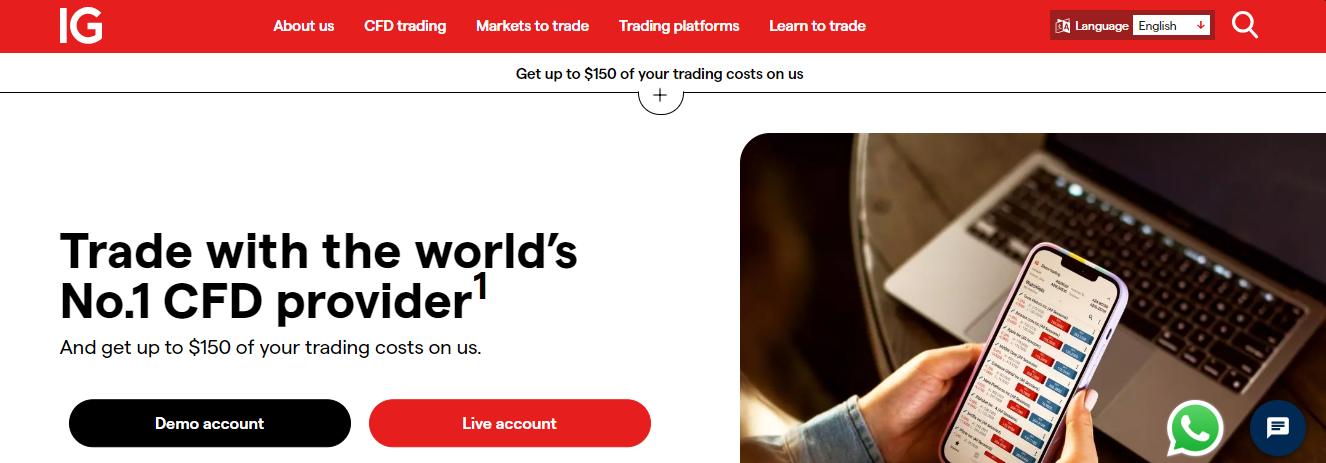
IG is perfect for beginners with its micro-lot trading and MT4 platform, enhanced by 18 add-ons and Autochartist signals. There’s no minimum deposit if you use bank wires, and the execution speed is impressive at 13 milliseconds. You can trade commission-free with spreads starting at 0.6 pips.
Pros
- Wide range of assets
- No minimum deposit via bank wire
- Fast order execution
Cons
- Limited deposit and withdrawal methods
3. Pepperstone: Low-Cost Trading Champ
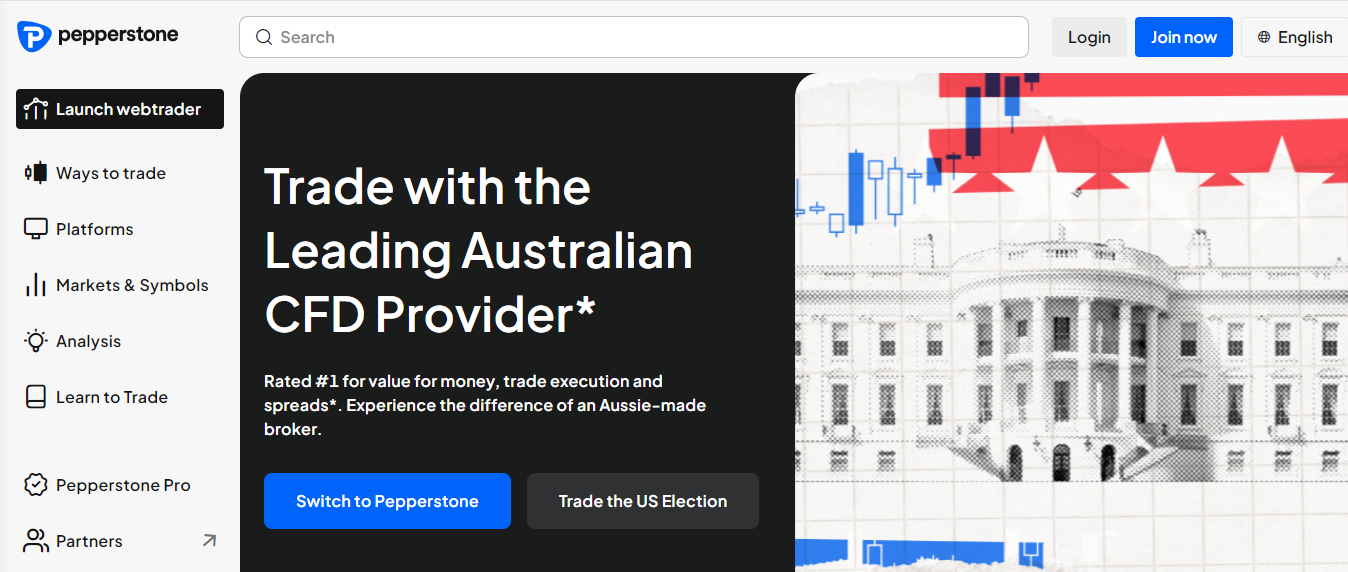
Pepperstone offers competitive pricing with its Standard and Razor accounts. The Standard account has no commission, with spreads starting at 1.0 pip. For tighter spreads as low as 0.0 pips, the Razor account charges a $3.50 commission per side. Swap-free accounts are available for those who can’t receive or pay swaps.
Pros
- Competitive pricing
- Swap-free account options
- Multiple account types
Cons
- Standard account spreads are higher than Razor's
4. ActivTrades: Zero-Commission Trading Legend

ActivTrades provides a top-tier trading experience with markets like Forex, Commodities, and Cryptocurrencies. Spreads start at 0.5 pips, and there are no commissions. While card payments might incur a small fee, there are fee-free deposit alternatives, and there’s no minimum deposit requirement.
Pros
- Broad market selection
- Zero-commission trading
- No minimum deposit
Cons
- Some deposit methods may incur fees
5. FP Markets: All-Rounder with Copy Trading
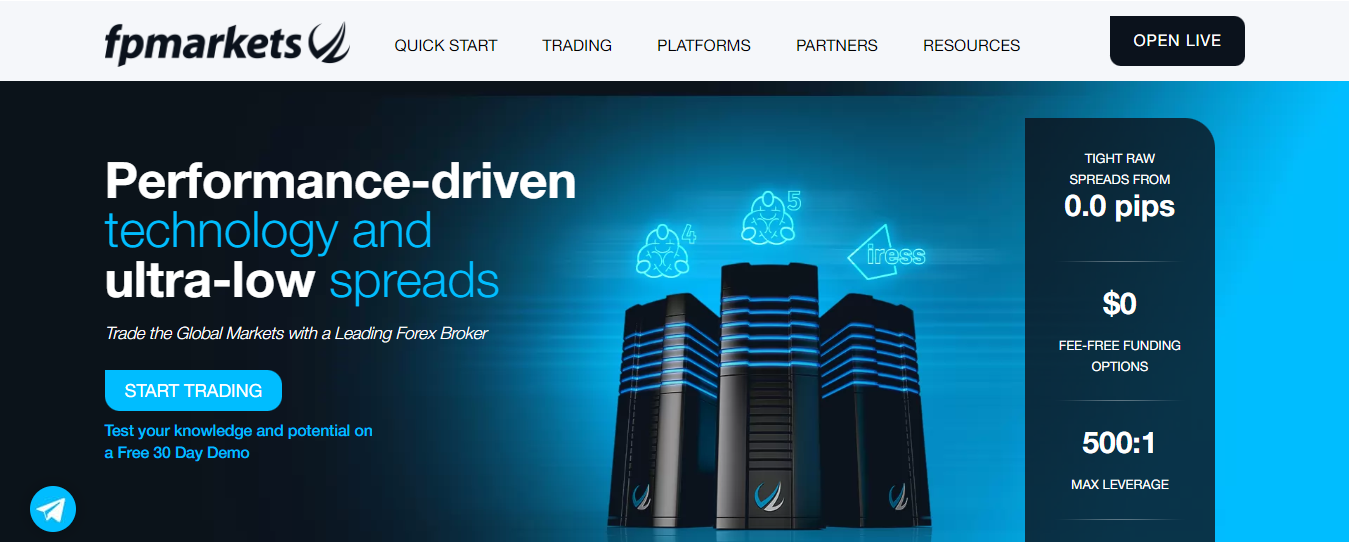
FP Markets is known for its robust asset selection, including cryptocurrencies and ETFs. The commission-based account offers raw spreads starting at 0.0 pips. You can also diversify with copy trading solutions embedded in MT4, MT5, and cTrader.
Pros
- Wide range of assets
- Copy trading options
- Affordable minimum deposit
Cons
- Fees on some trading accounts
6. Plus500: Beginner's Best Friend
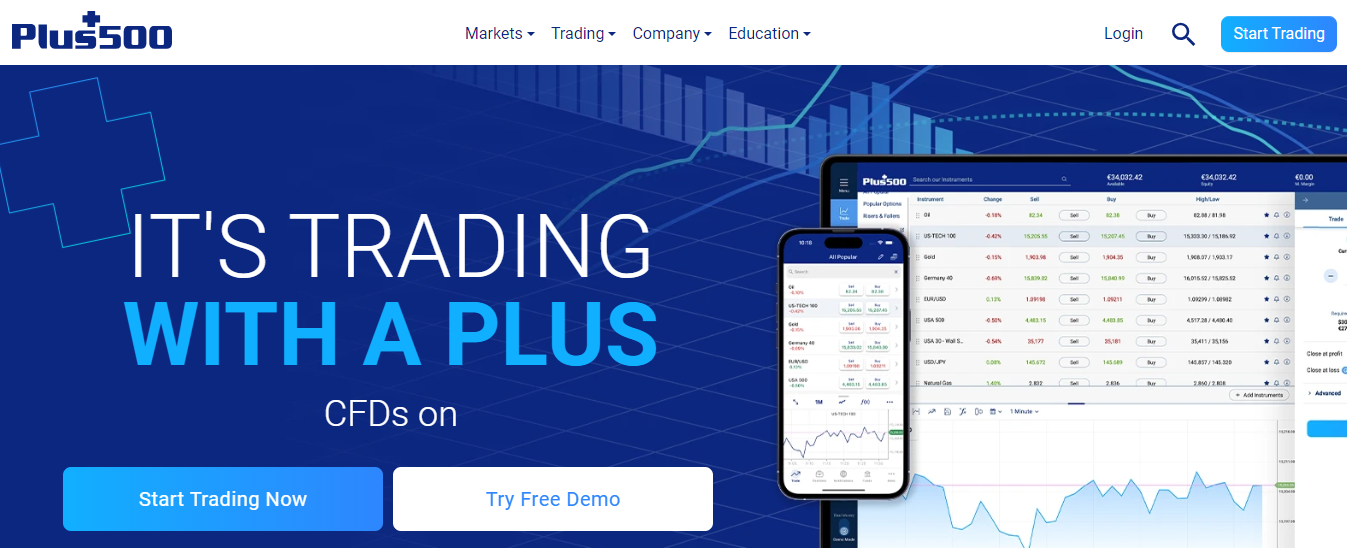
Plus500’s user-friendly platform is perfect for beginners. It features guaranteed stop-loss orders and over 100 charting indicators. The +Insights analytics tool helps identify market trends, offering a seamless trading experience for novices.
Pros
- Easy-to-use platform
- Robust charting tools
- Educational content
Cons
- Limited advanced tools for experienced traders
7. eToro: Copy Trading Pioneer

eToro excels in copy trading and offers a wealth of educational content. The platform is user-friendly, making it ideal for beginners. You’ll find videos, articles, and webinars organized by experience level.
Pros
- Excellent copy trading tools
- Educational resources
- User-friendly platform
Cons
- It may not be suitable for advanced traders
8. Eightcap: Micro Lot Trading Pro
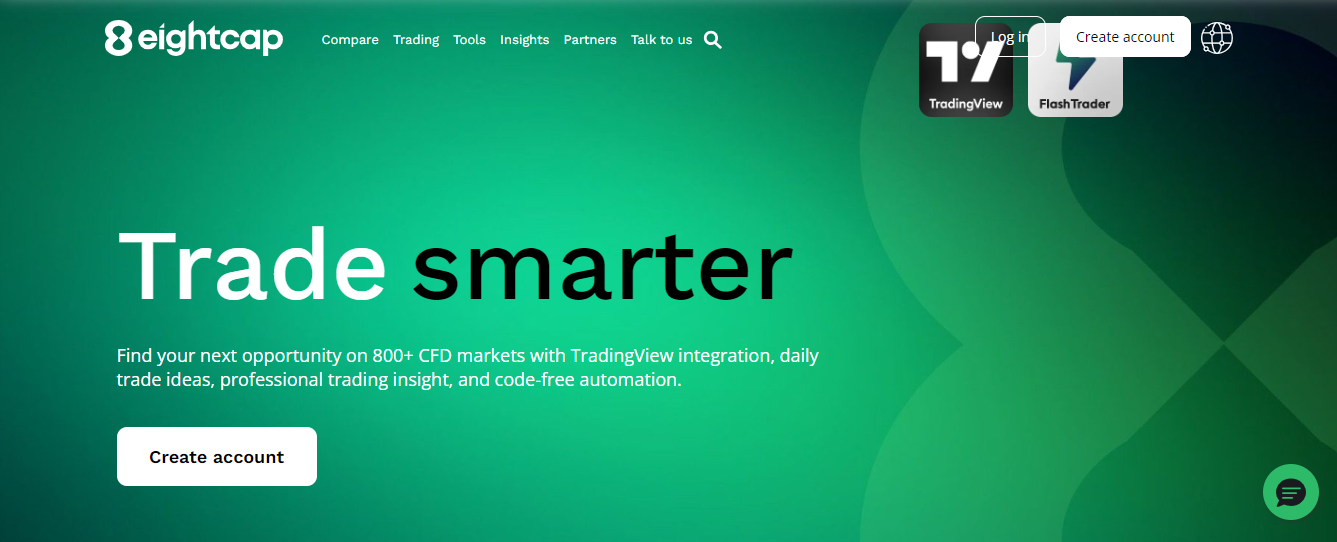
Eightcap allows micro lot trading with minimum transaction sizes of 0.1 lots. It offers competitive trading fees and quality educational content while connecting accounts to the active TradingView community.
Pros
- Micro lot trading
- Competitive fees
- Educational content
Cons
- Lacks a dedicated micro lot account type
9. BlackBull Markets: Accessible and Versatile

BlackBull Markets has no minimum deposit and supports cryptocurrency transactions. It offers competitive leverage and deep liquidity, making it a top choice for micro lot traders.
Pros
- No minimum deposit
- Cryptocurrency-friendly
- Strong liquidity
Cons
- Some fees may apply for specific features
10. XTB: Low-Cost Trading Excellence

XTB is a secure and regulated broker with spreads starting from 0.5 pips and no commissions on standard accounts. Pro account users can benefit from even tighter spreads for a small commission.
Pros
- Low trading costs
- Regulated and secure
- Swap-free account options
Cons
- The Pro account has a commission
11. IC Markets: Cost-Effective Trading Expert

IC Markets offers both Standard and Raw Spread accounts, with spreads starting as low as 0.8 pips on the Standard account. Raw Spread accounts have tighter spreads, with a commission of $ 3.50 per side for MetaTrader users. Swap-free accounts are available for Islamic traders.
Pros
- Low-cost trading
- Multiple account types
- Swap-free options
Cons
- Administrative fees for swap-free accounts
Related Reading
- Forex Trading Signals
- Forex Trading Sessions
- Forex Trading Software
- Best Forex Pairs to Trade
- Oanda vs Forex.com
- Best Forex Brokers Dubai
- Most Volatile Forex Pairs
- Best Forex Prop Firms
How to Choose the Best Forex Broker for Small Accounts

1. Spotting a Trustworthy Forex Broker
When it comes to picking a forex broker, regulation plays a significant role in protecting your money. Always choose a well-regulated broker. They have to follow strict rules, which means your money is safer. Here's how to understand different regulators:
Top-Tier Regulators
These are the major regulatory bodies, including the FCA, CySEC, and ASIC. They offer the highest level of protection. Brokers under these regulators must keep their funds separate from their own and have safety nets, such as compensation schemes.
Mid-Tier Regulators
These are reliable but not as big as the top ones. They operate in respectable financial areas.
Lower-Tier Regulators
Often found offshore, these don't offer the same level of protection. Be cautious with brokers regulated by these entities.
Always check a broker's regulation status by reviewing their terms and conditions and verifying it on the regulator's website.
2. Unpacking the Costs of Forex Trading
Fees can eat into your profits, so it’s crucial to find a broker with transparent and competitive costs. Here's what to look for:
Spread
The difference between the buy and sell price. Some brokers mark up spreads significantly on micro lot accounts, so watch out.
Commission
The fee for executing trades. It’s usually a fixed amount per transaction.
Overnight or Swap Fee
Charged for holding positions overnight. This can vary widely.
Payment Fees
Costs for depositing or withdrawing funds. These can add up.
Inactivity Fees
Charges for not trading over a specific period.
Check the broker's fee structure on their website or contact customer support for clarity.
3. Finding the Right Forex Account Type
Not all account types are created equal. The names can be confusing, but here's a breakdown:
Standard Lot
100,000 units of currency.
Mini Lot
10,000 units.
Micro Lot
1,000 units.
Nano Lot
100 units.
Some brokers offer "Micro" accounts, but you might find better terms on other accounts that allow trading micro lots. Do your research to find the account with the best fees and features.
4. Leverage: A Double-Edged Sword
Leverage can be a powerful tool, but it’s risky. With leverage, you can open larger positions with a small deposit. However, this amplifies both gains and losses. Tier-1 regulators cap leverage at 1:30 to protect traders. Offshore brokers may offer significantly higher leverage, but this also increases risk management. Understand the risks and select a leverage level that aligns with your risk tolerance.
5. Choosing the Right Trading Platform
A good platform is essential for successful trading. Here are some popular options:
MetaTrader 4 (MT4)
Known for its reliability and advanced charting tools.
MetaTrader 5 (MT5)
An upgraded version of MT4, offering more features.
cTrader
Great for high-frequency traders and scalpers.
TradingView
A web-based platform with excellent charting capabilities.
Proprietary Software
Some brokers offer their platforms with unique features.
Choose a broker that offers multiple platforms to ensure you can trade smoothly, even if one platform faces issues.
Related Reading
- Major Forex Pairs
- US Prop Firms
- Forex Trading for Dummies
- Forex Brokers with High Leverage
- Forex Trading Bots
- Forex Signals Providers
- Forex Trading in Dubai
- What Is Margin in Forex Trading
- What Is a Pip in Forex Trading
- Forex Market Sentiment
- Forex MT4 Brokers
- Forex Trading Profit per Day
Forex Trading Tips for Small Accounts

Choose the Right Broker to Start Your Journey
Finding the best forex broker for small accounts is your first step. Look for brokers licensed in well-regulated jurisdictions so you know they’re trustworthy. You’ll want a broker with low minimum deposit requirements, competitive spreads, and reliable customer support. These factors can significantly impact your trading experience.
Start with a Realistic Amount of Capital
Determine how much money you can afford to trade with comfortably. Start small to avoid overextending yourself financially. A mini forex account is perfect for beginners because it allows you to trade smaller amounts while you learn the ropes.
Practice Smart Risk Management
Risk management is crucial when you’re trading with a mini forex account. Set stop-loss orders to limit your losses and protect your capital. Only risk a small percentage of your account on each trade to minimize the impact of a losing trade.
Focus on Quality Over Quantity
Don’t get caught up in making lots of trades. Focus on finding quality trades that align with your strategy. This will help you avoid impulsive decisions and increase your chances of success.
Use Leverage Wisely
Leverage allows you to control larger positions with a smaller amount of capital. But it also amplifies both profits and losses. Use leverage judiciously and be aware of its potential risks.
Stay Informed and Educated
Keep up with market news, economic indicators, and events that might impact the forex market. Continuously educate yourself about different trading strategies and techniques. This will help you stay ahead of the game and make informed decisions.
Maintain Discipline and Patience
Successful trading requires discipline and patience. Stick to your trading plan and avoid making impulsive decisions. This will help you stay focused and avoid costly mistakes.
Looking for a funded trading program to turn your skills into substantial profits without risking your capital? AquaFunded offers access to accounts up to $400K with flexible trading conditions, no time limits, easy-to-achieve profit targets, and up to 100% profit split.
Join Our Funded Trading Program Today - Trade with our Capital and Keep up to 100% of the Profits.
Are you ready to take your forex trading to the next level without risking your own money? AquaFunded has you covered. With access to trading accounts up to $400K, you can maximize your skills without putting your funds at risk. The platform offers some of the most flexible trading conditions you'll find. Forget about stressful deadlines and outrageous profit targets. Here, you have no time limits and easy-to-reach goals.
Over 42,000 traders are already on board, having earned more than $2.9 million. And with a 48-hour payment guarantee, you get paid fast. Whether you choose instant funding or decide to prove yourself through customizable challenges, AquaFunded lets you keep up to 100% of what you earn.
Related Reading
- Best Laptop for Trading Forex
- Best AI for Forex Trading
- Best Leverage for Forex
- Prop Trading Salary
- Instant Funding Forex Prop Firms
- List of Forex Prop Firms
- Top Forex Traders in the World



